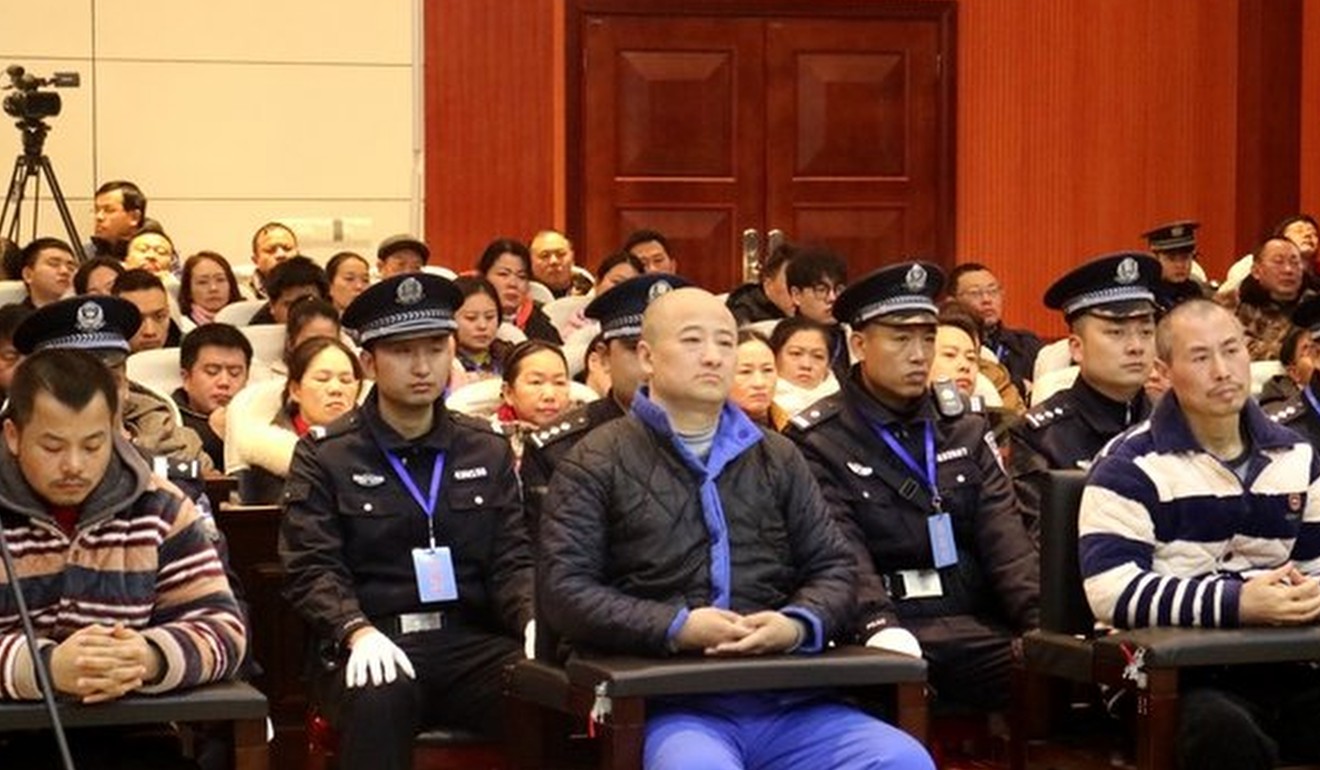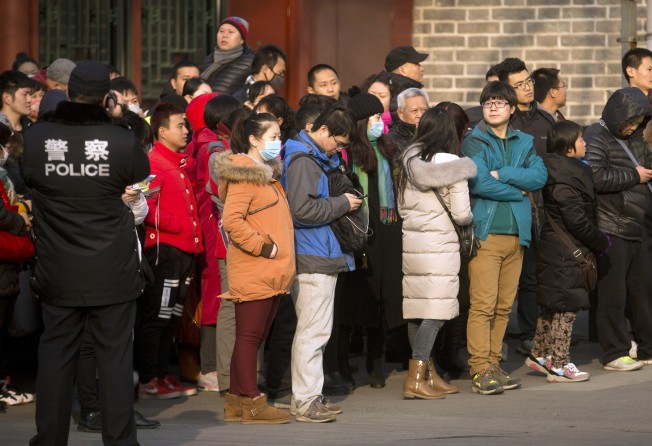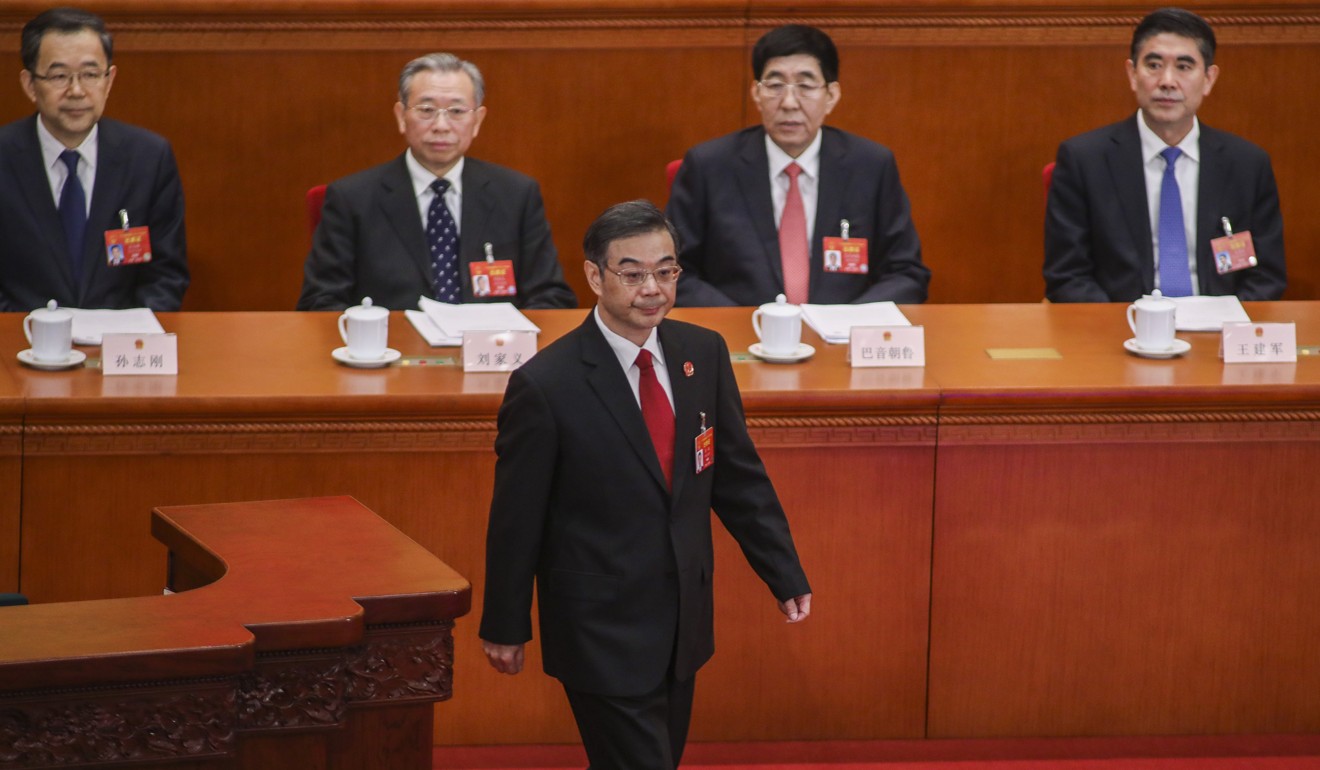
Chinese courts pledge to increase pressure on financial crime after sharp rise in prosecutions for illegal crowdfunding, pyramid schemes and bad loans
- Prosecutor says 27,000 people were charged with running scams in 2018
- Overall number of people to appear before the courts charged with financial crimes in 2018 was close to 27,000 – a 10.9 per cent increase on the year before

The Chinese Supreme Court’s senior judge and top prosecutor have pledged to tackle illegal financial schemes after official figures showed that the number of criminal trials for pyramid scams alone rose tenfold last year.
Financial scams have spread rapidly across China in the past decade and victims of the schemes, which offer unrealistically high returns, often include the most vulnerable members of society such as low-income migrant workers, the elderly and the unemployed.
Pyramid schemes often involve the right to sell a product or financial plan. An investor will pay a recruiter a fee to be allowed to sell the item and that money flows “up” the pyramid at the expense of those lower down.
Zhou Qiang, Chief Justice and President of the Supreme People’s Court, used his report to the annual parliamentary sessions at the Great Hall of the People in Beijing on Tuesday to announce that more ways and means would be found to tackle financial crime.

The appendix of Zhou’s report disclosed the sharp rise in criminal hearings involving pyramid scams, although he did not state the total number of trials for this offence.
He also pledged to work with other agencies towards tackling these and a wide range of other crimes.
Meanwhile in his report, the country’s top prosecutor Zhang Jun said that the overall number of people to appear before the courts charged with financial crimes in 2018 was close to 27,000 – a 10.9 per cent increase on the year before.
This figure would include the pyramid scammers, as well as a range of other offences such as running illegal crowdfunding scams and bad peer-to-peer loans – an offence that is a particular concern for the authorities.
In an illustration of the scale of this problem, last month the Ministry of Public Security said it investigated more than 380 online peer-to-peer loan platforms and opened more than 16,000 cases involving 360 billion yuan (US$54 billion).
The ministry said its efforts took down more than 220 criminal networks that involved 1,020 suspects in 86 countries.
By comparison, state media agency Xinhua said that authorities confiscated 990 million yuan from 21,904 pyramid scheme cases in the period 2005 to 2015.
In 2016, police shut down Ezubao, a Ponzi scheme recognised as one of the country’s largest online peer-to-peer lending services and one worth 50 billion yuan. Two of its executives were jailed for life.

A Ponzi scheme is typically run by a “manager” who promises investors returns on their money and pays out with contributions from later investors, for example the notorious US fraudster Bernie Madoff.
Following Ezubao’s collapse, Chinese President Xi Jinping listed financial risk management as a policy priority, on a par with pollution and poverty, with a crackdown on illegal lending forming one part of the drive to tackle the problem.
In December, Zhang Tianming – the founder of a 100 billion yuan Shanxinhui pyramid scheme – was jailed for 17 years. It amassed nearly six million members, nearly half of whom never received the payout they were promised. Zhang was also fined 100 million yuan for leading the multilevel marketing scheme.
In the summer of 2017, a mob took to the streets of Beijing in a protest against Shanxinhui, adding incitement to create a public disturbance to Zhang’s rap sheet, a Shanghai court statement said.
His nine employees were given jail terms of between one and a half and 10 years for their parts in the scam.